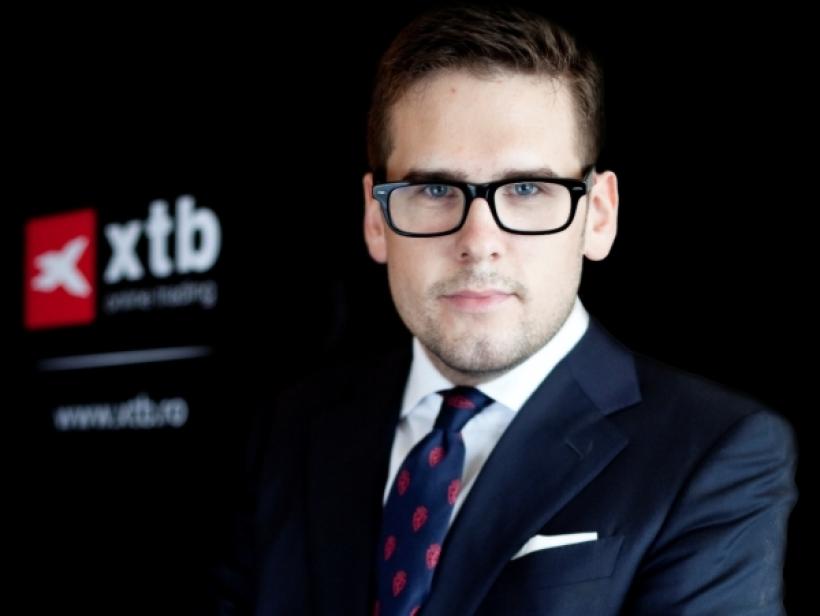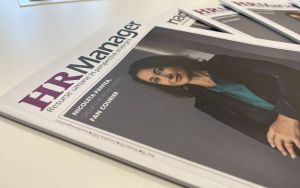The sums of money saved in bank deposits have been growing at a steady pace in the past few years, even in a low-interest rate environment. At the same time, investments on the stock exchange, on the Forex or on the derivatives market are still far from where they could be in a country the size of Romania.
Moreover, the financial world is nowadays quite sophisticated, with more and more instruments that appear daily and thousands of influences on the markets. However, there is a key to enter this world - financial education. Understanding money and the flow of it can help everybody gain financial freedom. Learning about financial markets, entrepreneurship, real estate, etc can easily become a source of additional income. By having a conscious approach to personal finance we can become less exposed to the things that influence our incomes. Therefore, it is in our own interest to understand that taking calculated risks demands know-how. Understanding how financial markets work could make a big difference for the personal budget. Moreover, financial education is becoming more and more a must. Take for example the retirement plan - Romanians, just like other people in Europe, will eventually be having more and more of a say on their future pensions, as the current system proves to be unsustainable and more attention is given to private pensions. The more interference of financial issues in the day to day life, the more the need for a proper understanding of key concepts.
Like Romanians, twenty-something years ago, Poles used to have their finances planned for them by the state. Yet, somehow, even though the communist regimes ended at virtually the same time in both countries, in the past few years we have seen the Polish capital market grow and develop into a regional power, while Romania’s stagnated. The Warsaw Stock Exchange has over 1.5 million retail accounts, while Romania has only 80.000 of which only few are actually used. In the Forex and derivatives market, the difference is similar, there are 100.000 Polish accounts while, although the number has been increasing in the last years, in Romania, we are assuming there are somewhere around 8.000 accounts. It is obvious from these numbers that there is a major difference in approaching investments between the two countries, but this does not mean that Poles are more entrepreneurial or financial- minded than Romanians. Then, what could be the explanation?
In our opinion, Poland may have benefitted from some more attention given to financial education. The Central Bank had an important role, investing important resources in supporting economic and financial education programs in the past few years: programs for schools, essay competitions and trainings for the youth; edutainment programs and internet clips for adults, all of these have contributed to the results we see in Poland, and there is no reason to believe that this success story cannot be replicated in Romania. Moreover, in Poland, the stock exchange has also invested in educating its potential clients, teaching them about the nature of investment products. In the end, these programs seem to have made a difference and have given confidence to Polish individuals to place their savings in more complex (but possibly more rewarding) schemes.
Romania also seems to be on the right track. Governor Mugur Isarescu has, in his recent speeches, given hints that the Central Bank will be more and more involved in financial education. Starting this year, children in the third or fourth grade can learn about basic finance in the first Financial Education program implemented in schools in cooperation with the Central Bank. It is a necessary step and our only criticism is the fact that it is an optional course and not a mandatory one – because children need to grow accustomed to these facts early on.
But much more is needed, and, besides the Central Bank and, possibly, the Stock Exchange, private companies should also get involved with their own programs, if they want to reap long-term benefits. At XTB, we place a great deal of attention on financial education for our clients and potential clients. Education is vital in our industry.
The Forex market provides opportunities to achieve very high returns on the capital invested. At the same time, it is important to know that not all people trading on the Forex market can achieve high earnings. Why? Firstly, due to the fact that the market is demanding itself, because it is volatile and influenced by many factors that we must understand. Secondly, it requires a great discipline and self-awareness of emotions that are driving the investor. As in other categories of life like sports or business, one needs great discipline to be successful. The third reason, which is specific for Romania, is that we have experienced in last years a great deal of companies promising easy returns during short periods of time or cold calling retail investors offering ‘easy gains’. This has created confusion and a lot of damage to the local market, as people are not aware of the risks involved in trading on the Forex market. But all of the above are not particular only to the Forex market; this is how financial markets work, the higher potential gains, the higher risks involved. Only people that are aware of this and have proper knowledge on how to manage these risks and a high self-discipline level can be successful. The good news is that all of this can be learned.
When we came here, we planned for the long term as we would like not only to attract customers, but also keep them. For this, we would like our customers to be careful with their money and realize all potential risks associated with trading before actually starting to invest. We organize seminars and webinars for our customers and have a comprehensive online database containing guidebooks and tutorials in an attempt to give our customers all the information they would need for trading. We believe that the more educated people will be on the aspect of finance, the more they will be willing to explore other options for investing their money rather than the simple bank account.
Tadeusz Kuropatwinski is General Manager, Xtb România





